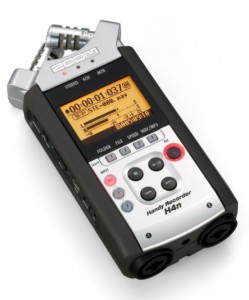
–The Musician’s Way, p. 176
Speaking from the stage can powerfully enhance audience-performer rapport, provided that we musicians polish our public speaking skills.
Here are six public speaking guidelines for performers, adapted from Chapter 9 of The Musician’s Way.
6 Public Speaking Guidelines for Musicians
1. Speak at the Start
If you plan to greet listeners at the start of a concert, speak immediately following your entrance, as applause wanes, rather than deferring until after you set up and tune.
By comparison, performers who don’t speak at the outset but instead focus on adjusting their music stands and gear can come across as cold or indifferent, especially to audiences who aren’t accustomed to the detached stage habits common among classical performers.
2. Welcome, Inform, and Entertain
Warmly welcome your listeners, give a brief overview of your program, and then intersperse spoken tidbits throughout your show.
Connect to people’s emotions by sharing the likes of short, evocative stories as opposed to offering up mundane facts such as composer birth dates. (Update: see, “How Not to Talk to Audiences“)
3. Manage your Volume & Delivery
Speak with ample volume and clarity, pause slightly between phrases, and shift your gaze among different areas of the audience. Even if you rehearse every word, speak in ways that sound unscripted.
At unamplified classical concerts, unless you’re performing in a tiny venue, use voice amplification.
4. Be Congenial but Concise
Audiences attend concerts to hear music, not monologues.
That said, be sure to thank the people and organizations that support you and who facilitated your appearance.
5. Be Yourself
It’s your distinctive personality that attracts listeners, so project your true self.
Being authentic can also help quell any nervousness you may feel.
6. Practice Your Speaking Skills
To bolster your abilities, incorporate speaking into your practice performances, and enlist a high-quality recorder or, at minimum, video-record with your phone.
Also seek feedback from colleagues and mentors, possibly sharing videos for them to review.
Recommended recorders with HD sound: Zoom H4n (audio); Q4n (audio & video)
* * *
In closing, if speaking from the stage seems alien to you, be undaunted. With intelligent practice, your on-stage manner, like your smile, will become a genuine expression of who you are.
See Parts I & II of The Musician’s Way for inclusive guidelines to prepare and present commanding performances.
Related posts
Becoming a Confident Performer
The Essence of Stage Presence
Mastering Performance Skills
Practicing Performance
© 2013 Gerald Klickstein
Photo © razihusin, licensed from Shutterstock.com



I totally agree with this article, I had a major problem with speaking from the stage, and one day I told myself hey why not make my speech part of my show 😉
Some great tips! I really like how you emphasize the principle that the audience is there to listen to the music, not to hear you speak. I would tell my former high school students to write down what they’re going to say on a card and read from that if they wanted to. The audience didn’t care, and time went back fast. Love this!
Thanks, Dwight. I concur that performers should feel free to bring written talking points onstage. Having such notes available can free them from having to remember what they want to say and help them focus on their music.
Great article Gerald. Speaking from the stage can be quite difficult for the most talented artists.
I’d also like to suggest joining your Toastmasters organization as an inexpensive way to polish your speaking skills.
Excellent suggestion, Mike – thanks for contributing to the MusiciansWay community!